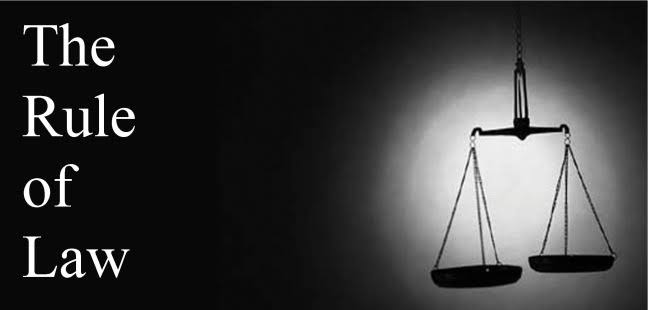Table of Contents
RULE OF LAW AND ITS APPLICATION IN INDIA
Rule of law is an ideal and a modern name for natural law. It is one of the pillars of the modern world, and widely considered necessary for development, the implementation of democracy and the protection of human rights. It can be said that basis of Administrative law is the ‘Doctrine of Rule of Law’.
A.V. Dicey, highlighted the concept of Rule of Law in his book ‘The Law and the Constitution’. Rule of Law is the fundamental principle of the English Legal System.
- ( Also Read: RULE OF LAW )
- ( Also Read: RULE OF LAW- AN OVERVIEW )
- ( Also Read: Rule of law and welfare state )
Dicey attributed the following three meanings of Rule of Law-
- Supremacy of Law,
- Equality before Law, and
- Predominance of Legal Spirit.
SUPREMACY OF LAW:
Dicey believed that only law could alone rule a man without any place for arbitration. He says that rule of law means the absolute supremacy of law and it excludes the existence of arbitrariness and if the administrative authority is given any kind of discretionary power, it would be dangerous for the supremacy of law. He said that, wherever there is discretion there is room for arbitrariness which may lead to insecurity of legal freedom of the citizen. It means that no one should be punished except for breach of law.
EQUALITY BEFORE LAW:
According to the second principle of Dicey, there must be equality before law or equal subjection of all classes to the ordinary law of land administered by the ordinary courts. Every person regardless of his economic condition or rank should be treated equally in front of law. It means that law should not discriminate against people on the basis of race, religion, gender, creed, social background and so forth. It should apply equally to ordinary citizen and to government officials.
PREDOMINANCE OF LEGAL SPIRIT:
Dicey believed that there must be an upholding authority and that this authority could be found in the courts. The courts are the authorities of rule of law and they should be both fair and liberated from every outer impact. The courts should be the protectors of liberty, equality and justice of the citizens.
RULE OF LAW UNDER INDIAN CONSTITUTION
The provisions of rule of law were taken both from USA and England Constitutions. The Rule of Law can be found in Part III of the Indian Constitution. These rights have been guaranteed against the state and its instrumentalities. If there is infringement of such rights, one can move to Supreme Court or High Court under Article 32 and 226 of the Indian Constitution.
The Constitution is supreme and the legislative, executive, and judiciary are subject to the Constitution. Any law made has to obey the Constitution and any law failing to do so would be declared invalid.
LANDMARK CASES
The application of Rule of Law in India was seen in the case of Kesavananda Bharati v. State of Kerala where the Supreme Court held that the rule of law is an essential part of the basic structure of the Constitution and it could not be amended by any power vested in the Parliament.
In A.K. Kraipak v. Union of India, the court observed that rule of law runs like a golden thread through every provision of the Constitution and constitutes one of its basic features, which requires that every organ of the state must act within the confines of powers conferred upon it by the Constitution. The Rule of Law pervades over the entire field of administration.
In Indira Nehru Gandhi v. Raj Narain, the Supreme Court held clause (4) of Article 329(A) as unconstitutional. All the judges were of the view that the 39th Amendment was violative of Rule of Law. Beg J. observed that jurisdiction of supreme court to try a case on merits cannot be taken away without any injury to basic postulates of the Rule of Law and of justice within a politically democratic constitutional structure.
CONCLUSION:
It is necessary to implement rule of law for upholding the democracy of a country and to keep the administrative authorities under the law. The Constitution has all machinery necessary for the development and maintenance of rule of law, yet it is not firmly established in India. The rule of law cannot be established merely by enacting laws and giving rights to the people. The desire for it must be a goal of every citizen of the country.
Author: sushma,
Ideal Institute of Management and Technology, 2nd year (BALLB)

